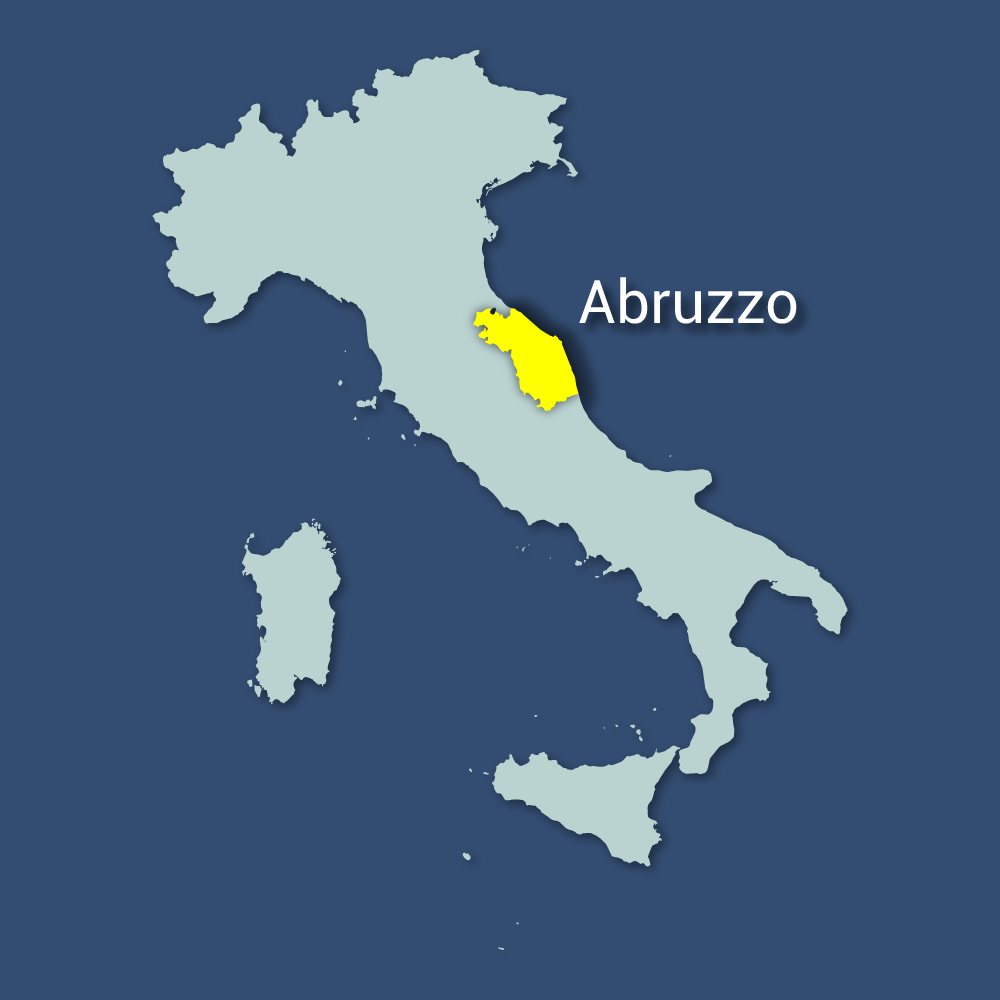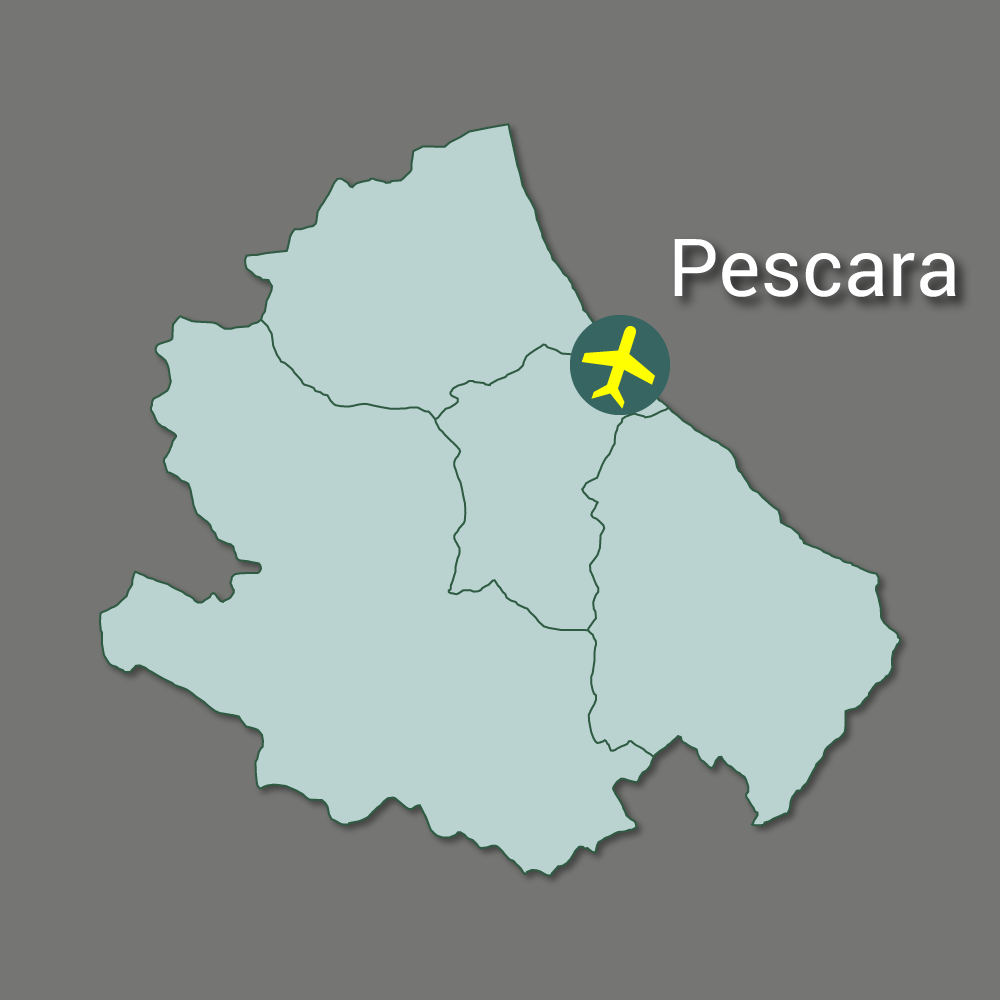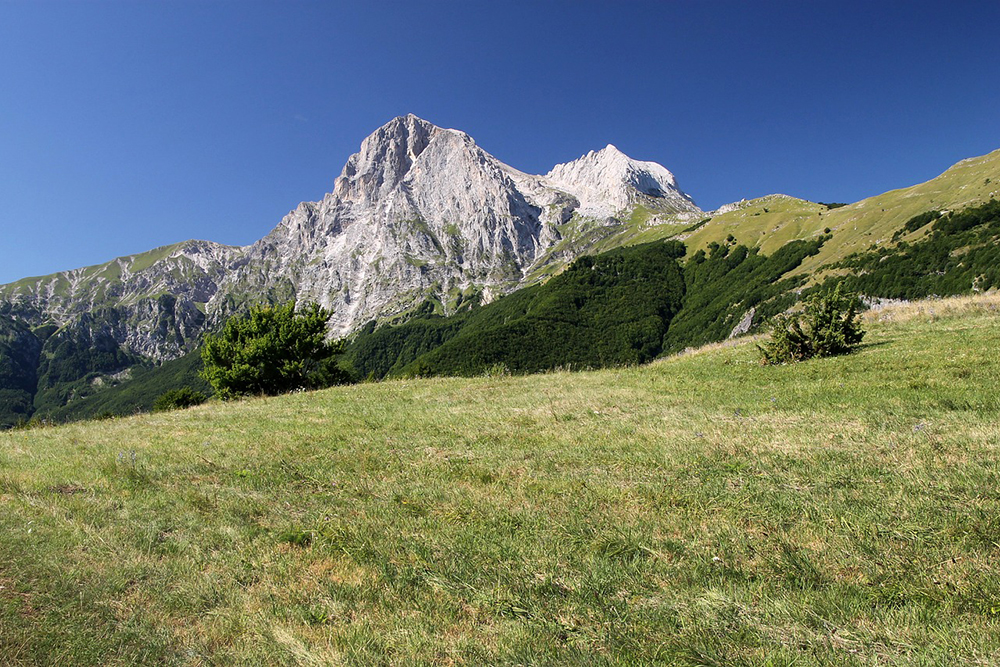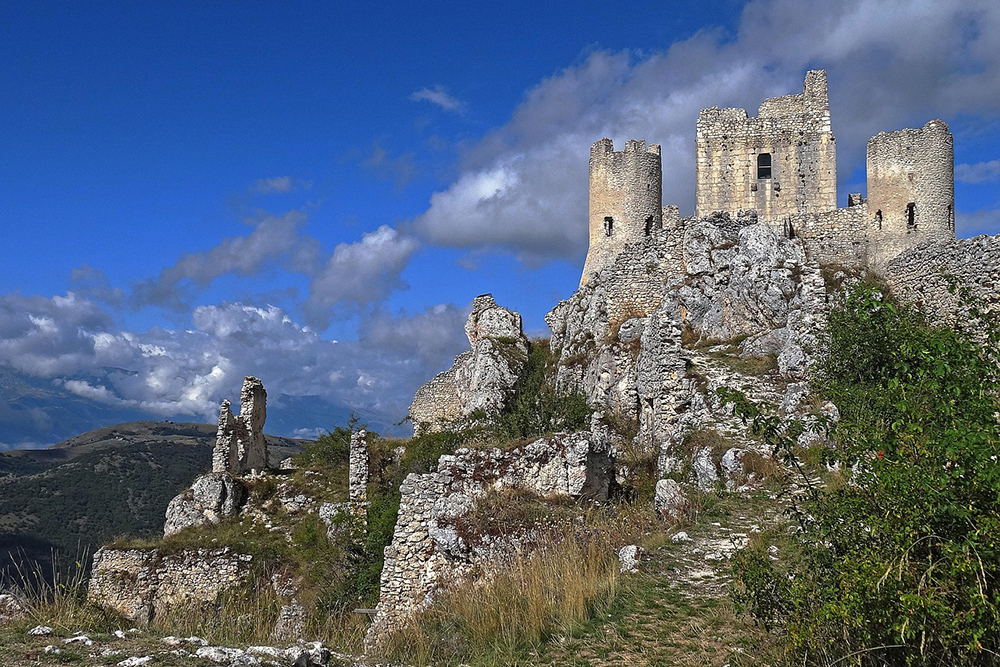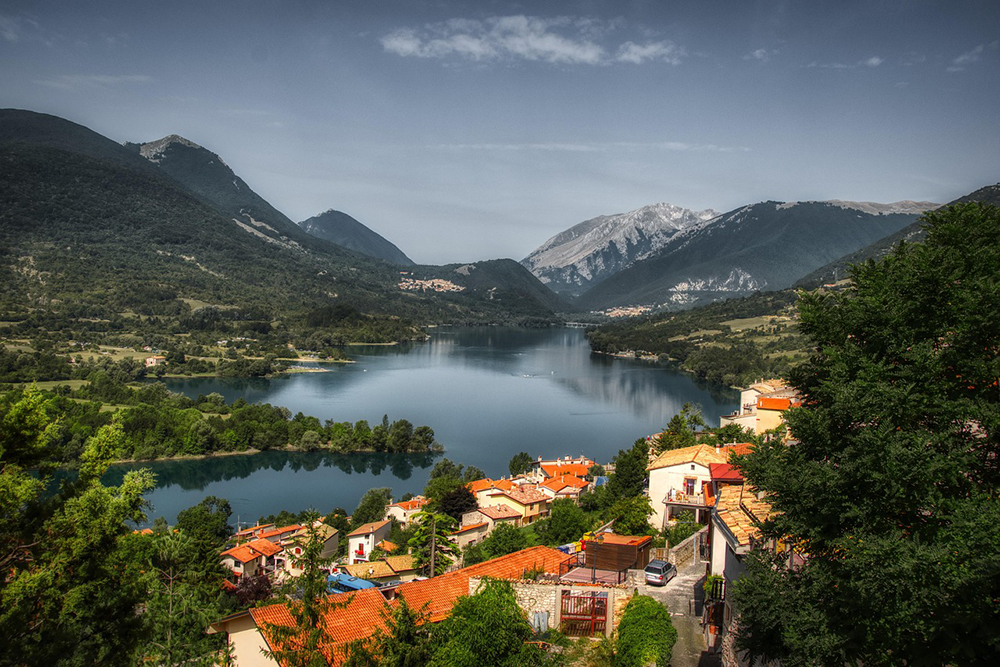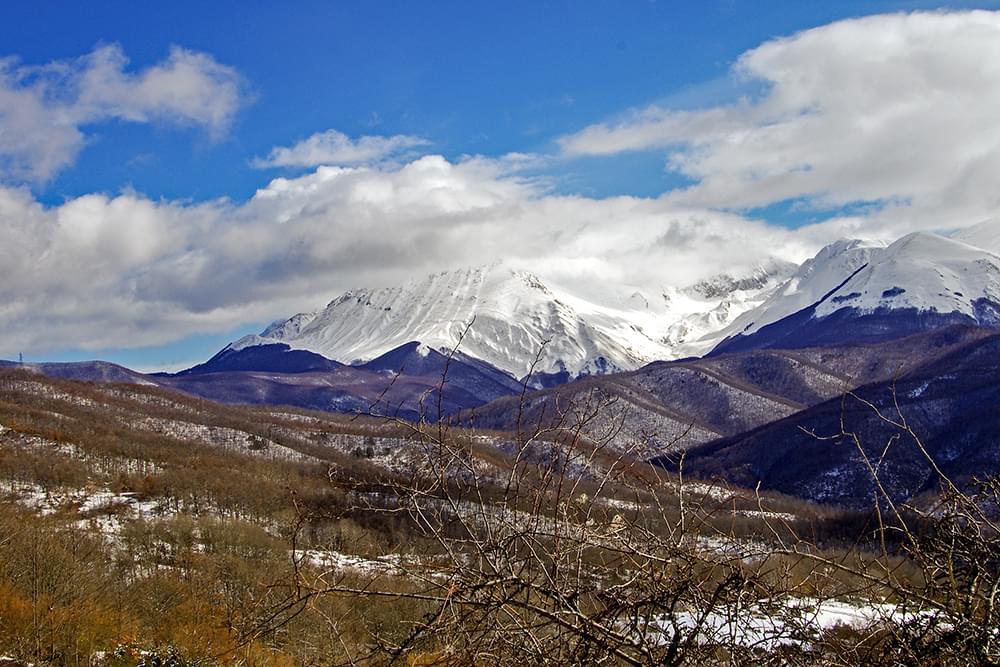
Province of L'Aquila
The province of L’Aquila, the largest in the region of Abruzzo and in all of central Italy, is a place of extraordinary contrasts: towering mountains, sweeping valleys, centuries-old villages, and deep spiritual heritage. Far from the usual tourist trails, it offers a compelling mix of unspoiled landscapes, ancient monasteries, traditional festivals, and authentic Italian life. Nestled in the very heart of the Apennine mountain range, this province is a dream for hikers, history buffs, and those searching for serenity.

Province of L'Aquila, Abruzzo
A land of peaks: Gran Sasso and Majella
L'Aquila province is home to some of the most awe-inspiring mountain scenery in Italy. The Gran Sasso d’Italia, the tallest peak in the Apennines, towers at 2,912 meters and is a haven for mountaineers, climbers, and skiers. Its alpine meadows, dramatic cliffs, and glacial valleys are part of the Gran Sasso and Monti della Laga National Park, which stretches into the northern part of the province.
In the south, the Majella Massif dominates the horizon. Often referred to as the “Mother Mountain” of Abruzzo, Majella is part of a national park known for its rugged beauty, rare wildlife (including the Apennine wolf and Marsican brown bear), and network of ancient hermitages carved into rock faces by mystic monks centuries ago.
Between these two giants, L’Aquila province is a wonderland of nature trails, canyons, forests, and high plateaus, including the breathtaking Campo Imperatore, a vast mountain plain dubbed “Little Tibet” for its stark, remote beauty.
Medieval villages and stone towns
Scattered across the mountains and valleys of L’Aquila province are some of Italy’s most enchanting historic towns.
Santo Stefano di Sessanio, a perfectly preserved medieval hilltop village, is one of the most beautiful in Italy. Its narrow alleys, stone buildings, and atmospheric silence make it feel like a place lost in time. Nearby, Rocca Calascio, the highest fortress in the Apennines, stands dramatically above the valley, a cinematic location made famous by films like *Ladyhawke*.
Sulmona, in the Peligna Valley, is another jewel of the province. Known as the birthplace of the Roman poet Ovid, Sulmona boasts elegant architecture, a lively main street, Roman ruins, and a tradition of making colorful confetti, sugared almonds that have been produced here for centuries.
Scanno, a lakeside village with a backdrop of mountains and known for its distinctive traditional dress and striking black-and-white photography by Cartier-Bresson, is a must-see. The nearby Lake Scanno is a beautiful heart-shaped lake surrounded by forested slopes.
Spiritual sanctuaries and religious heritage
L’Aquila province is deeply spiritual, with a history of hermits, saints, and pilgrims. The mountains are dotted with sanctuaries and abbeys, such as the Sanctuary of San Gabriele, the Hermitage of San Bartolomeo, and the Abbey of Santo Spirito a Majella.
The town of Celano, dominated by a grand 15th-century castle, is home to a beautiful cathedral and the Museum of Sacred Art. Celano also offers a dramatic entrance to the Gole di Celano, a deep canyon that’s a favorite among hikers.
The province’s spiritual heart arguably lies in its namesake capital and the surrounding countryside, where Pope Celestine V, the hermit pope, once lived and inspired generations with his simple, humble faith. His legacy lives on in the Celestinian Forgiveness (Perdonanza Celestiniana), a centuries-old religious festival and pilgrimage now recognized as UNESCO Intangible Cultural Heritage.
Seasons of color: festivals, traditions, and flavors
L’Aquila province is alive with tradition and seasonal festivals that reflect its agricultural roots and strong sense of community. From springtime flower festivals to autumn chestnut and truffle fairs, local events are a feast for the senses.
Easter and Christmas bring ancient religious processions, while summer fills the piazzas with music, theater, and food festivals. The Giostra Cavalleresca of Sulmona, a colorful medieval jousting tournament held every July, is one of the province’s most unique events.
The cuisine of L’Aquila province is robust, flavorful, and rooted in the land. Dishes such as maccheroni alla chitarra, arrosticini (grilled lamb skewers), lamb with saffron, and pecorino cheese are staples. Local truffles, wild herbs, mountain honey, and spelt from the hills enrich the menus of traditional trattorie.
Wines such as Montepulciano d’Abruzzo and Cerasuolo are produced here, as well as fine liqueurs infused with herbs from the Majella and Gran Sasso.
Sustainability and slow travel
L'Aquila province embodies the spirit of slow travel, offering meaningful, immersive experiences in small communities that are working to preserve their heritage and natural surroundings. Many of the towns have embraced eco-tourism, agritourism, and sustainable practices. Historic buildings are being restored, and cultural traditions are being passed down to new generations.
With its remote villages, lack of mass tourism, and deep respect for the land, L’Aquila province is perfect for those seeking authenticity, tranquility, and a connection with Italy's soulful side.
Access and adventure
Despite its wild terrain, L’Aquila province is reachable by road and rail from Rome in just over an hour. Once here, a car is the best way to explore its many hidden corners.
Adventure lovers will find endless opportunities for hiking, mountain biking, rock climbing, and skiing in resorts such as Ovindoli, Campo Felice, and Roccaraso (just across the provincial border). In every season, L’Aquila offers outdoor experiences for all levels.
Final thoughts
L'Aquila province is not just a place, it’s an invitation to rediscover the essence of Italy. With its epic mountains, quiet villages, spiritual depth, and raw beauty, it speaks to travelers who crave more than just sights, they seek stories, silence, and soul.
For those who dare to wander into its winding paths and ancient trails, L’Aquila rewards with timeless beauty and unforgettable memories.


